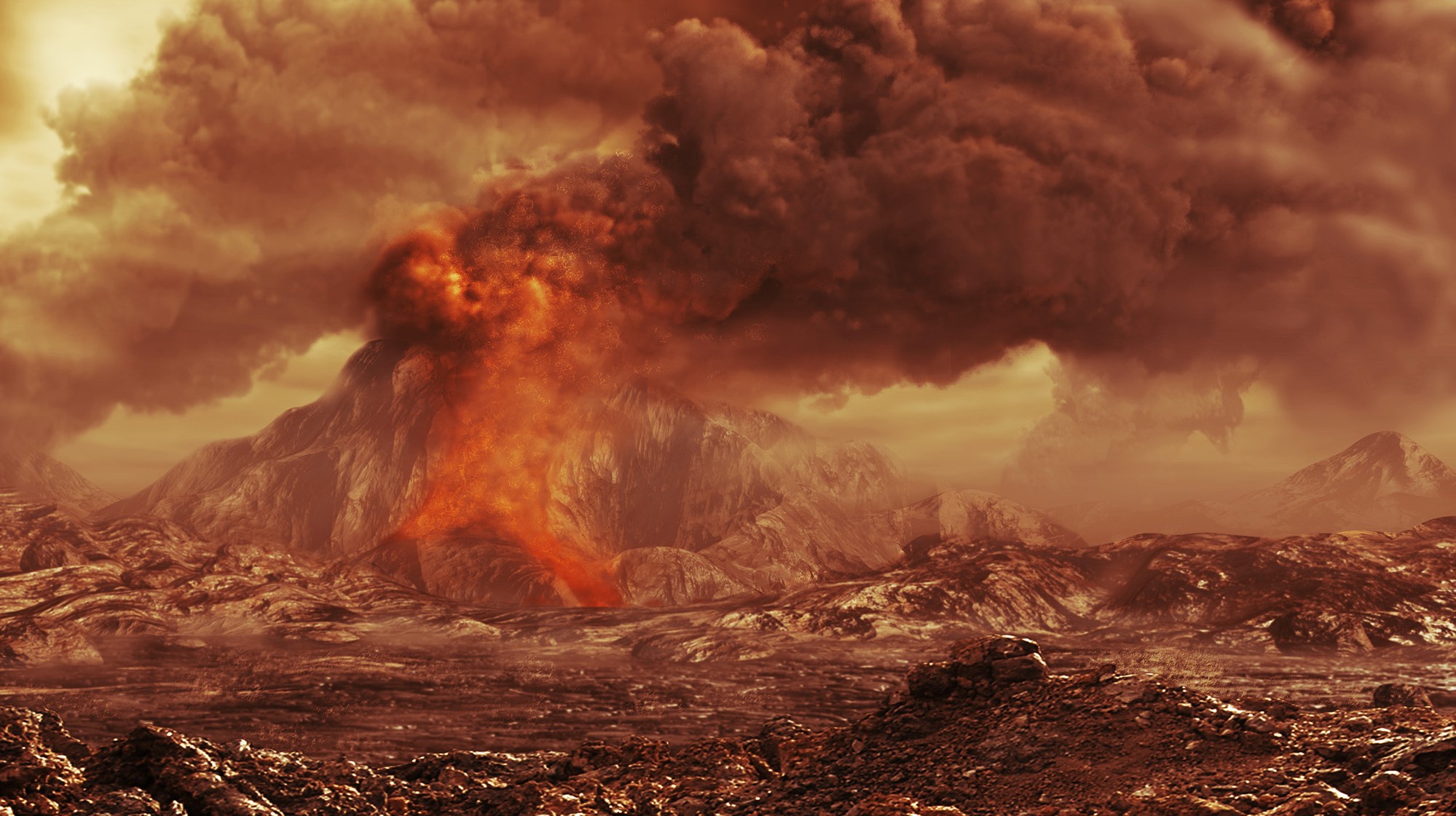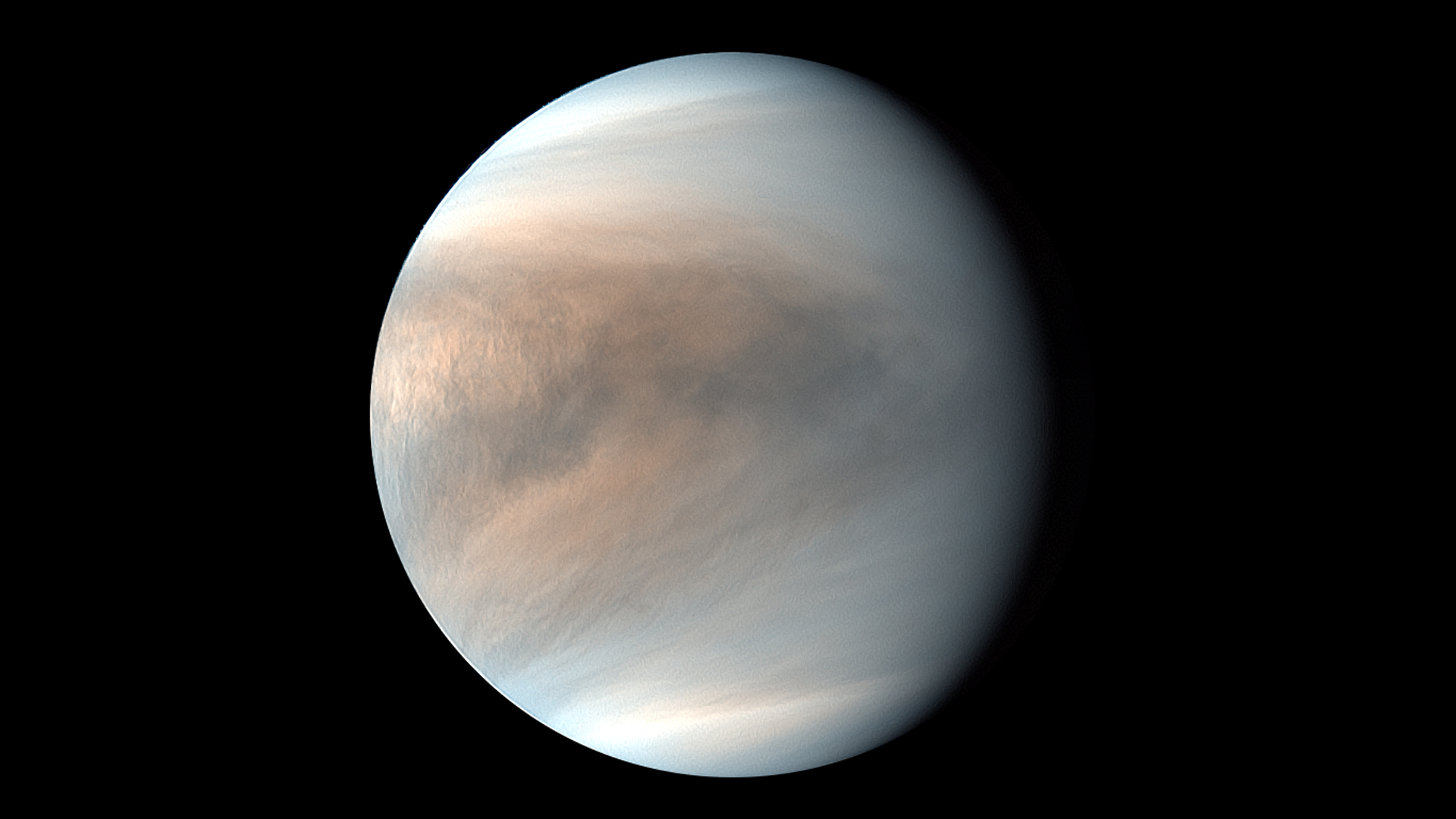
Venus' youthful appearance could be the result of a ferocious bombardment by asteroids and comets, whose high-energy impacts superheated the planet's interior, a new study reports.
Planetary scientists estimate the age of a planet's surface by counting the number of craters embedded in it. The more craters there are, the older that surface must be to have allowed time for all those impacts to take place.
Earth has very few visible impact craters, and its surface is constantly churned over by subduction zones at the boundaries between continental plates.
Related: Planet Venus: 20 interesting facts about the scorching world
Venus, too, has relatively few craters, and a surface estimated to be less than a billion years old. Yet Venus does not have plate tectonics, so it cannot renew its surface in the same way that Earth does over geological time periods.
What Venus does have is volcanoes, and a lot of them — more than 80,000, in fact. Most of these are volcanic vents from which lava seeps out rather than explosive volcanoes from mountaintop calderas, and earlier this year scientists made the first discovery of active volcanism on the Venusian surface. Over geological timescales, lava can flood the planet's surface, filling in craters and creating a more youthful appearance than Venus' true age of 4.5 billion years.
On Earth, plate tectonics are the main driver of volcanism, but since Venus lacks plate tectonics, what drives its volcanic activity has been something of a mystery. One leading theory had been that Venus endures bouts of cataclysmic volcanism every 500 million years or so as heat builds up beneath a thick, stagnant crust, but the mechanism to allow this had always been vaguely described. And so a team of planetary scientists, led by Simone Marchi of the Southwest Research Institute (SwRI) in San Antonio, Texas, have found another possible explanation.
Early in the history of the solar system, the inner planets were being pelted by asteroids and comets. Marchi's team compared the impact histories of Earth and Venus, and found that Venus was hammered by more energetic impacts.
"Higher-impact velocities melt more silicate, melting as much as 82% of Venus' mantle," said study co-author Raluca Rufu of SwRI in a statement.
This extra energy superheated Venus' interior, supporting billions of years' worth of volcanism, the new research found.
"Our latest models show that long-lived volcanism driven by early, energetic collisions on Venus offer a compelling explanation for its young surface age," said Jun Korenaga, a co-author from Yale University.

For now, this remains only a compelling hypothesis, but forthcoming missions to Venus may be able to find evidence to support it. These include the European Space Agency's EnVision mission that will launch in the early 2030s, and NASA's VERITAS (Venus Emissivity, Radio Science, InSAR, Topography and Spectroscopy) orbiter.
Both missions will study Venus' surface and geological activity in its subsurface. However, NASA has postponed the VERITAS mission due to budget squeezes, although a second mission called DAVINCI (Deep Atmosphere Venus Investigation of Noble gases, Chemistry and Imaging), is still going ahead as planned, targeting a 2029 launch to study the planet's dense atmosphere. DAVINCI also might be able to confirm or rule out the existence of phosphine, a potential biosignature that has been the subject of recent controversial claims.
"Interest in Venus is high right now," said Marchi. "These findings will have synergy with the upcoming missions, and the mission data could help confirm the findings."
The research was published last week in the journal Nature Astronomy.







